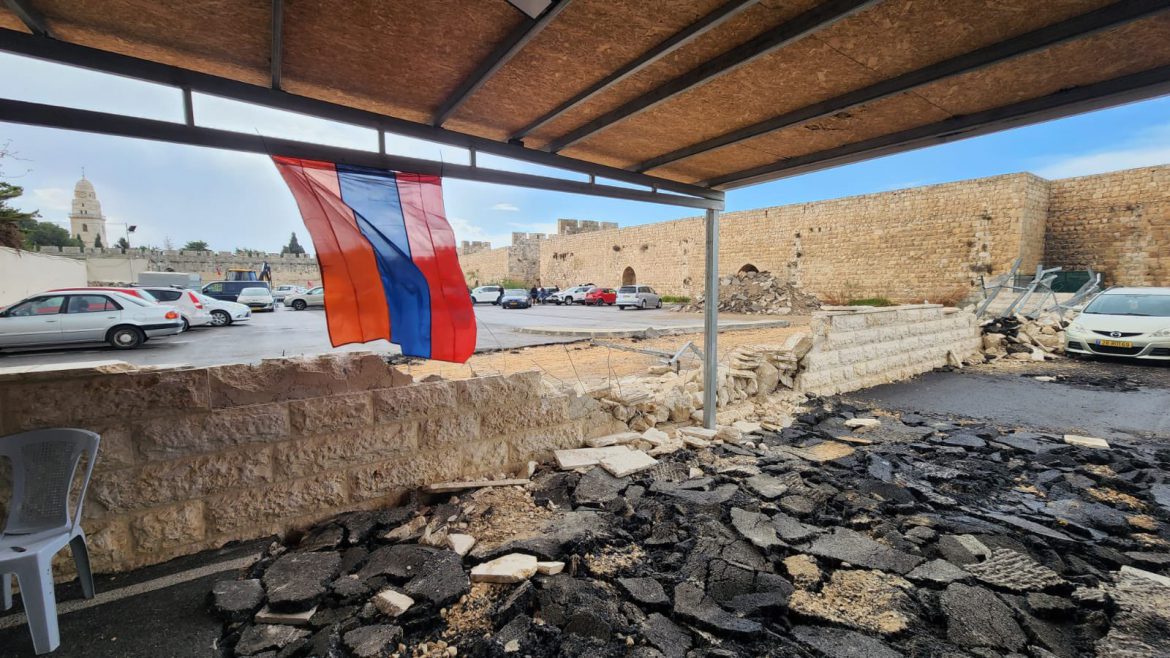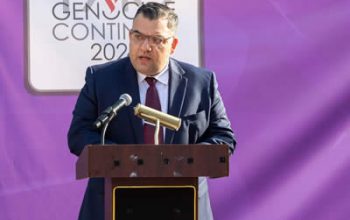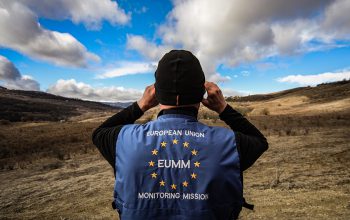By Lillian Avedian,
The Armenian Weekly
An ongoing land dispute between the Armenians of Jerusalem and a real estate company with alleged ties to settler organizations escalated on December 28 when the Armenian community was attacked by a group of masked men.
A group of 30 people wearing ski masks entered the Cows’ Garden in the historic Armenian Quarter of the Old City of Jerusalem and deployed pepper spray, batons, attack dogs and stones. A dozen community members were injured, including several priests and students of the Armenian theological academy.
The Armenian community has organized over the past two months to defend the Cows’ Garden, or Goverou Bardez, from attempts by developers to seize and demolish it. The Armenian Patriarchate of Jerusalem canceled a controversial deal in October that would lease the Cows’ Garden to a real estate company to build a luxury hotel. Since then, the company, which allegedly has ties to Israeli settler groups, has sent bulldozers and armed groups to take the land and commence construction by force. For the past two months, Armenian community members have launched a 24-hour sit-in to protect the Cows’ Garden, setting up tents and mattresses and refusing to move.
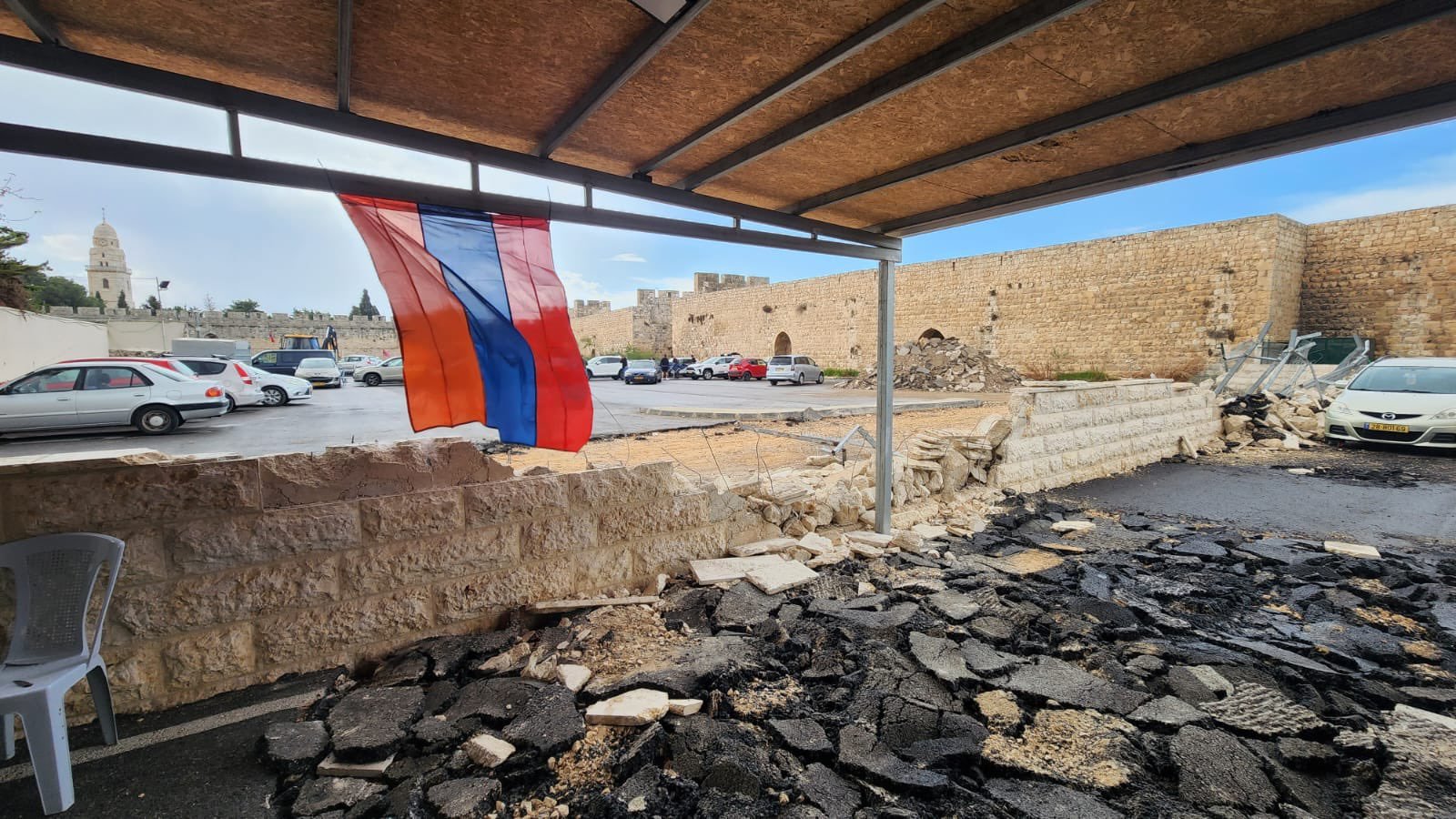
The Armenian Quarter is home to the oldest Armenian diaspora in the world. “The Armenian Quarter, representing 1/6 of the Old City, has been inhabited by Armenians since the fourth century during the inception of Christian pilgrimages to Jerusalem, adding to its historical and cultural richness,” reads a joint statement from Bedross Der Matossian, professor of Modern Middle East History at the University of Nebraska-Lincoln, and author Mary Hoogasian.
“Since the 1300s, this plot of land has been acquired through blood, sweat and a lot of financial help from the entire Armenian community,” Kegham Balian, Weekly columnist, Jerusalemite Armenian writer and media coordinator for Save the ArQ, told the Weekly regarding the Cows’ Garden. “Refugees used to come here. Pilgrims used to come here, set up tents and get nourished from the farm. To have it whisked away with a simple signature, with just the stroke of a pen, is catastrophic.”
A court confirmed that the 30 men who participated in the December 28 attack were hired by Xana Capital, the real estate company involved in the deal, according to Balian. He said Xana Capital has recruited groups of either Israelis or Arabs to participate in repeated, attempted attacks on the Cows’ Garden, providing them with false information about the purpose and targets. “It’s the classic modus operandi of settler-backed organizations. They try to make it seem like a religious altercation to pit different communities against each other,” Balian said.
“It’s not a Jewish-Armenian issue. It’s not a Muslim-Armenian issue. It’s an issue with Xana Capital,” he continued.
Arriving at the Cows’ Garden following the attack, Israeli police arrested two Armenian community members, Paul Djernazian and Bedig Giragossian. About a dozen Armenians have been detained so far while participating in the ongoing sit-in, including Kegham’s brother Setrag Balian, the co-founder of Save the ArQ, and one minor, a 17-year-old. Those detained are typically held for a few hours then released. According to Balian, none of the Armenians who have been detained were engaging in violence or in a physical altercation.
Yet Djernazian and Giragossian are the first to have been arrested. They were taken to a high security prison outside of Jerusalem and placed in cells along with members of the armed group who had attacked the Cows’ Garden. Djernazian slept on a cement floor with a thin blanket and his slippers under his head, afraid they could be stolen. Djernazian and Giragossian were released by the court two days later. While the police appealed the court’s order, the Jerusalem District Court rejected their appeal.
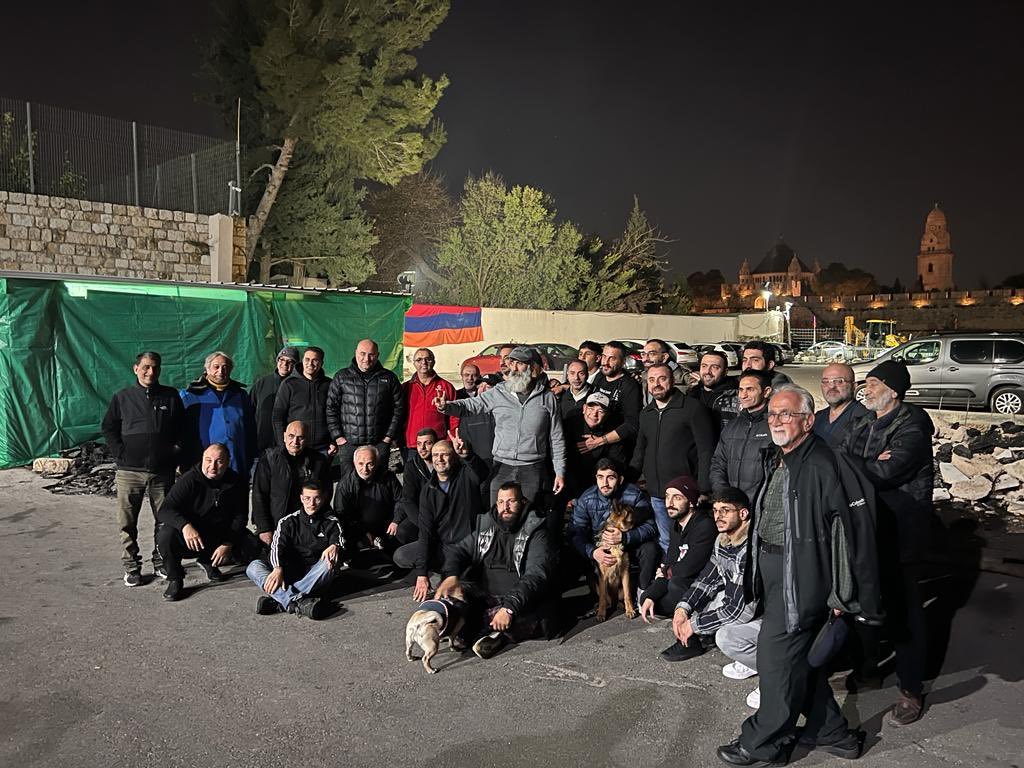
The land dispute revolves around a controversial deal signed between the Armenian Patriarchate and Xana Capital in 2021. The 99-year lease agreement granted the real estate company, led by Australian-Israeli investor Danny Rothman (also known in documents as Danny Kaufman or Rubenstein), about 25-percent of the Armenian Quarter. The agreement included a parking lot used by the entire community, five residential Armenian homes and the patriarchate’s seminary hall, all located in the Cows’ Garden.
“The more they attack, the more resilient and resolute we become in our goal of preserving and protecting our heritage. By intimidating us, they think we will be deflated and demoralized, but clearly they have never dealt with Armenians. Our community isn’t violent. We’re peaceful, but we’re not stupid,” Balian said.
The secretive agreement was reached without the knowledge or consultation of the Armenian community of Jerusalem and came under intense scrutiny by the community, clergy and Armenian lawyers from the United States. Pressure on the Patriarchate to cancel the deal heightened when the Palestinian Authority and Jordan withdrew their recognition of Armenian Patriarch Nourhan Manougian in May 2023, believing that the deal threatened the status quo in the Old City.
After the Patriarchate nullified the agreement on October 26, citing “false representation, undue influence and unlawful benefits,” Xana Capital resorted to sending bulldozers and armed groups to the Cows’ Garden to start construction by force. So far they have partially torn down the wall that separates the main parking lot from that of the Patriarchate. For two months, the Armenian community has staged a peaceful sit-in to protect the Cows’ Garden from further destruction.
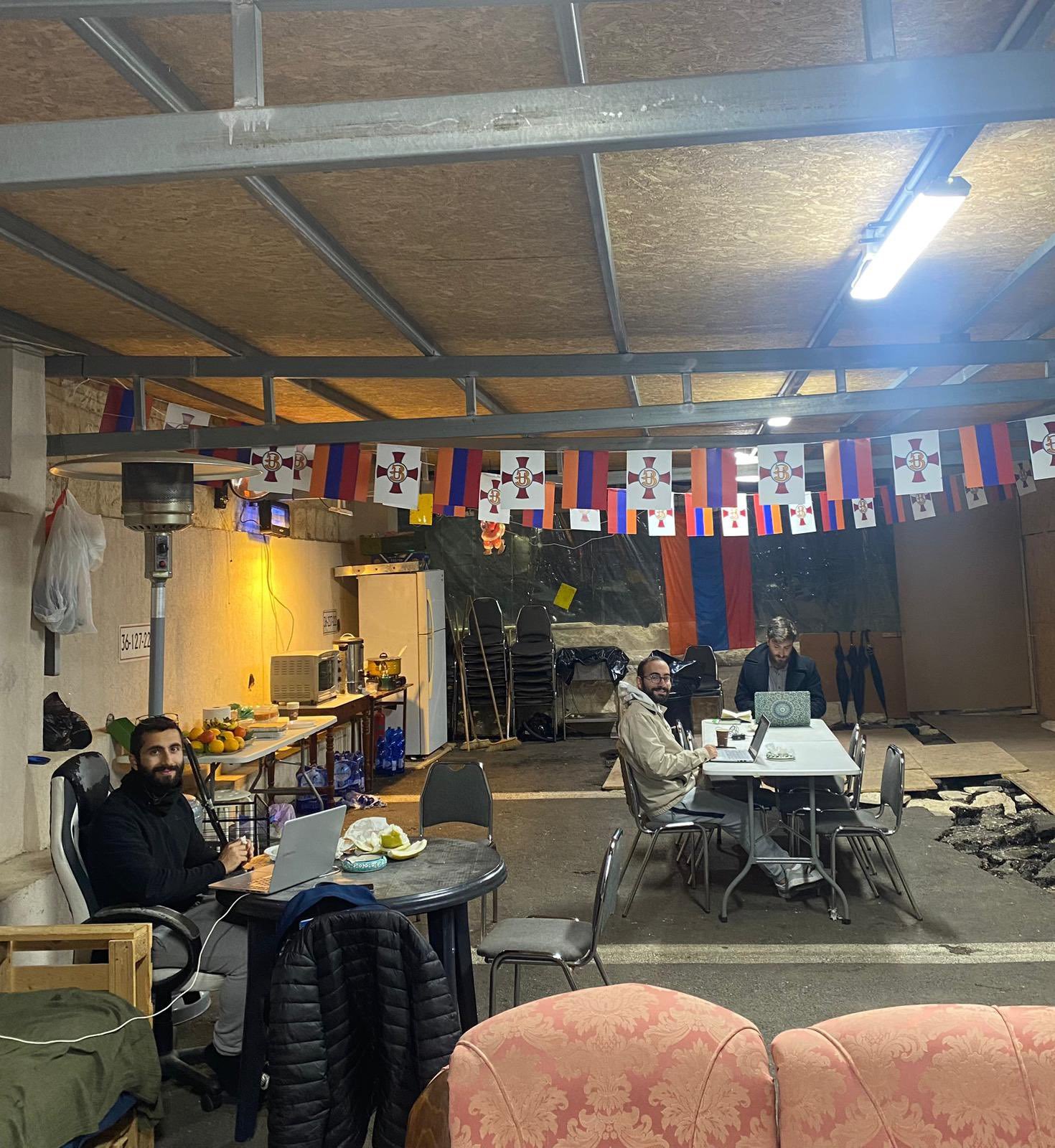
On November 5, Rothman entered the site with a group of 15 armed Israeli settlers and attack dogs. They reportedly demanded the expulsion of Armenians from the Cows’ Garden and called it their land. Alerted to their arrival, local Armenians joined the protest. After several hours of an intense stand-off, the settlers and Armenian community members were forced to disperse.
On November 12, a bulldozer arrived at the Cows’ Garden to continue demolition work. A group of Armenian protesters gathered to block access to the site with cars and fences.
A motorcade of Israeli settlers returned to the Cows’ Garden on November 15 on vehicles and motorbikes. Israeli police arrived on the scene and detained three Armenian community members participating in the peaceful protest.
In response, the Armenian Patriarchate released a statement on November 16 accusing the developers attempting to build on the Cows’ Garden of disregarding its cancellation of the lease agreement. “[They] have instead elected for provocation, aggression and other harassing, incendiary tactics including destruction of property, the hiring of heavily armed provocateurs and other instigation,” the statement reads.
“In recent days, the vast destruction and removal of asphalt on the grounds of the Armenian Quarter has been done without the presentation of permits from the municipality by neither the developer nor the police,” the statement continues.
For Balian, the crisis facing the Armenian Quarter represents another threat to historic Armenian land, following the fall of Artsakh in September 2023 and the ethnic cleansing of its Armenian population by Azerbaijan. “We saw our brothers and sisters get bombarded and butchered during the Artsakh War. It was a moral obligation on our part to defend this land, to prevent another loss of land,” Balian reflected. “We felt like we needed to do this to protect and preserve our heritage. Enough is enough.”
Lillian Avedian is the assistant editor of the Armenian Weekly. She reports on international women’s rights, South Caucasus politics, and diasporic identity. Her writing has also been published in the Los Angeles Review of Books, Democracy in Exile, and Girls on Key Press. She holds master’s degrees in journalism and Near Eastern studies from New York University.

